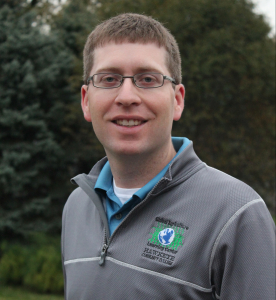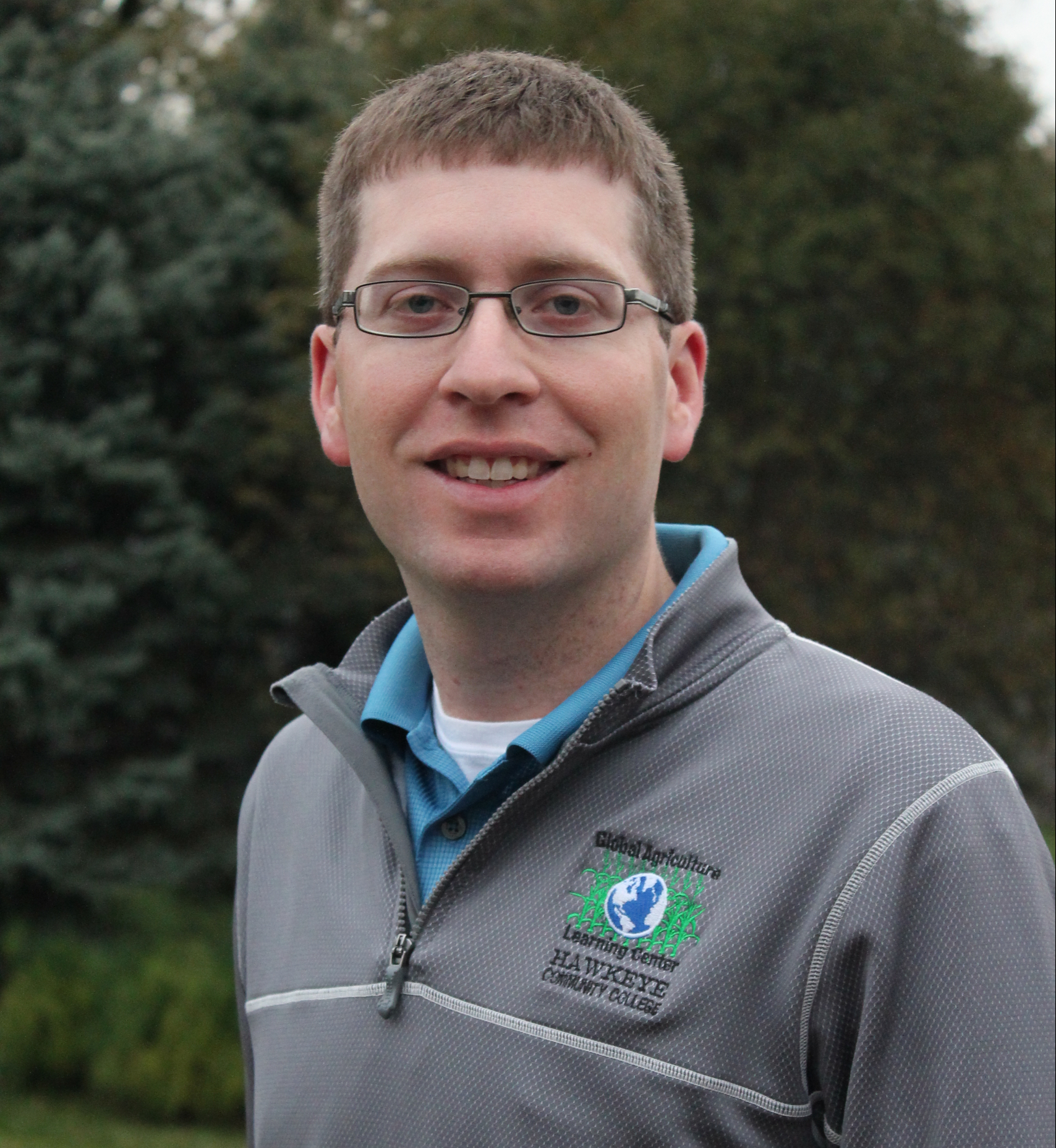Meet Brad Kinsinger, director of the Global Agriculture Learning Center at Hawkeye Community College. Kinsinger’s Techniques interview appears as part of a digital-exclusive spotlight series on fellows in the Postsecondary Leadership Success Program at ACTE – Sponsored by ECMC Foundation.

What leadership skills do you hope to develop as part of the Postsecondary Leadership Success Program at ACTE – Sponsored by ECMC Foundation?
Through the program I hope to gain valuable skills that allow me to empower others and become more efficient in my work. I hope to learn — from speakers and others in the program — how to be more intentional with my focus areas and purpose. Too often it seems as though I am running from fire to fire. What needs my greatest attention at this moment, that’s where my focus lies. I hope to prioritize my work to better serve others in and outside of our institution. I also strive to achieve a better work life balance.
In what ways have you innovated to engage students >amp; inspire colleagues in CTE through the COVID-19 pandemic?
I will never say that COVID-19 is a good thing, but it has taught us many things to help us improve in the future. For example, how can we provide opportunities for students to engage with other students from around the globe? Prior to the pandemic, I led numerous study abroad opportunities a year. These experiences had a great impact on students, but they’re limited to students who can afford or are willing to travel abroad.
Since we were unable to travel, we created a virtual exchange for students to connect from Denmark, the Netherlands and Iowa. There was no cost to participate, providing greater access for students to engage and develop their global competence. Even when travel returns for study abroad, I foresee continuing virtual exchanges to provide opportunities for all students.
Our education systems face many challenges in 2021. Please discuss the steps CTE can take to improve equitable access to high-quality CTE programs of study.
This is a question that I have struggled a lot with lately. We must be aware that there will be unintended consequences to many actions, especially when those with great privilege (including myself) are leading the efforts. I think the first step to creating greater equitable access to CTE is to approach all situations with an open mind.
Be willing to listen. Admit when you have made mistakes and surround yourself with a team of diverse individuals. Self-reflection is a big piece of this — once again, for me included. Educators must consider how they have or have not encouraged equitable access.
Next, we need to engage diverse stakeholders in the planning process. As we develop programs and strategies we must continually ask, “Whose voices need to be heard?” Then, after implementing plans and strategies, we must continue to evaluate and reflect. Our work will never be done.
Is there anything else you’d like to share?
We are all stronger together. If we are going to tackle the complex problems facing our communities and the world, we need to build diverse teams that are willing to work together for the common good.
Learn more about the Postsecondary Leadership Success Program at ACTE – Sponsored by ECMC Foundation.
Please also meet:
- Tiffanie Rosier, STEM education coordinator at Northern Virginia Community College
- Tachaka Hollins, assistant vice chancellor for academic affairs at the Tennessee Board of Regents
- Tracey D. Cooper, executive director of nursing at Temple College
- Bernie Phelps, director of Perkins, Perkins Rural Reserve and dual enrollment at Montana Technological University, Highlands College
- Vickie Thomas, director of the Center for Workforce and Community Development at Eastern New Mexico University – Roswell
- Moira Lafayette, dean of health sciences and public safety at Blackhawk Technical College
- Eric Sewell, director of technical education at Southern Union State Community College
- C.J. Wurster, district director at Maricopa County Community College District
- Katie Vincent, director of workforce partnerships at Owensboro Community and Technical College
- Xue Xing, assistant professor of teaching and learning at University of Nevada, Las Vegas
- Aleksander Marthinussen, program manager with NOVA SySTEMic at Northern Virginia Community College
- Martha Payan-Hernandez, director of CTE at Fullerton College
- Dan Adams, former CTE administrator and current stay-at-home dad
- Ashlee Spannagel, dean of CTE and workforce development at Southeastern Community College
- Darlene O’Rourke, Perkins grant director and officer at Queensborough Community College
- Shelsi Barber-Carter, CTE coordinator at Baton Rouge Community College








